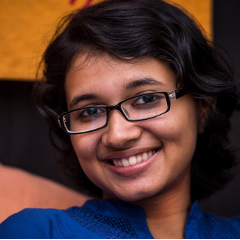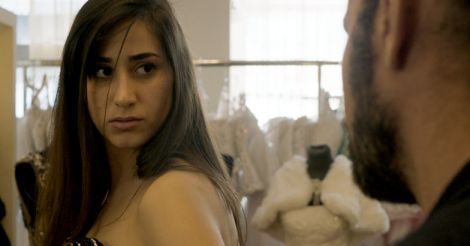Annemarie Jacir's father-son comedy-drama Wajib is about family ties and relationships set in the Israel city of Nazareth. Jacir has wonderfully handled the plot where a father and a son visit relatives to invite them to a wedding thereby reaffirming their bond with everyone.
Wajib also puts forward a discussion on what it means to be a Palestinian at home and a Palestinian living abroad. Shadi returns to Nazareth from Italy to accompany his schoolteacher father Abu Shadi to help him with inviting relatives and friends for the wedding of Abu’s daughter Amal.
The writing is too sharp and we find ourselves on a road journey with Abu and Shadi visiting an array of relatives. With subtle humor, Jacir portrays two different generations and the difference in their ideologies.
Though both Abu and Shadi have many differences, it is their Wajib (a tradition or a duty) to invite their family members together for the wedding. Abu’s son Shadi is an architect working in Italy but most of his relatives think that he is in America doing medicine. Shadi understands that his father has been less truthful about him but at the same time very proud. Though they haven't spent much time together in the past few years, they get to know more about each other in the course of the day. Both of them sitting side by side in a car has verbal clashes with their concept of values and Abu becomes critical about his son's sense of dressing (the pink shirt, red trousers, and his hairstyle), his outspoken attitude, and about his girlfriend whom Abu has never met.
Abu has lost touch with his estranged wife but Shadi maintains contact with her. At the same time, Abu considers his wife’s presence at Amal's wedding important and tries to find out whether she would be present. But it turns out that her new husband’s health condition is poor and they wait for her call to get a confirmation. Her ‘humiliating’ departure in the early years of Abu’s wedding is still afresh in his mind and he refuses to forgive her while Shadi tells him why he shouldn’t be bothered. The altercation develops into new found love between the father and son.
The open conflict also leads to a discussion on why Shadi was sent abroad forcefully by Abu and now his father asks him to come back home while he has become used to the culture of Italy. Shadi finds his home dirty with garbage piling up in every nook and corner, people ruining the beauty of their houses with plastic tarpaulins, and narrow-minded friends and family.
Every funny situation had so much truth involved that we end up laughing at ourselves.
The nicely paced natural script ends with a crisp climax proving that there are too many things that could drive the father-son apart but more things to keep them united. All is well and ends well!
The real-life father-son duo Mohammad Bakri and Saleh Bakri have been exceptionally natural and truthful to the character they have portrayed.
Wajib is a film that connects with people of every generation in every land. The film asks you to open up and fill the world with love. Everything can be mended through words.


























